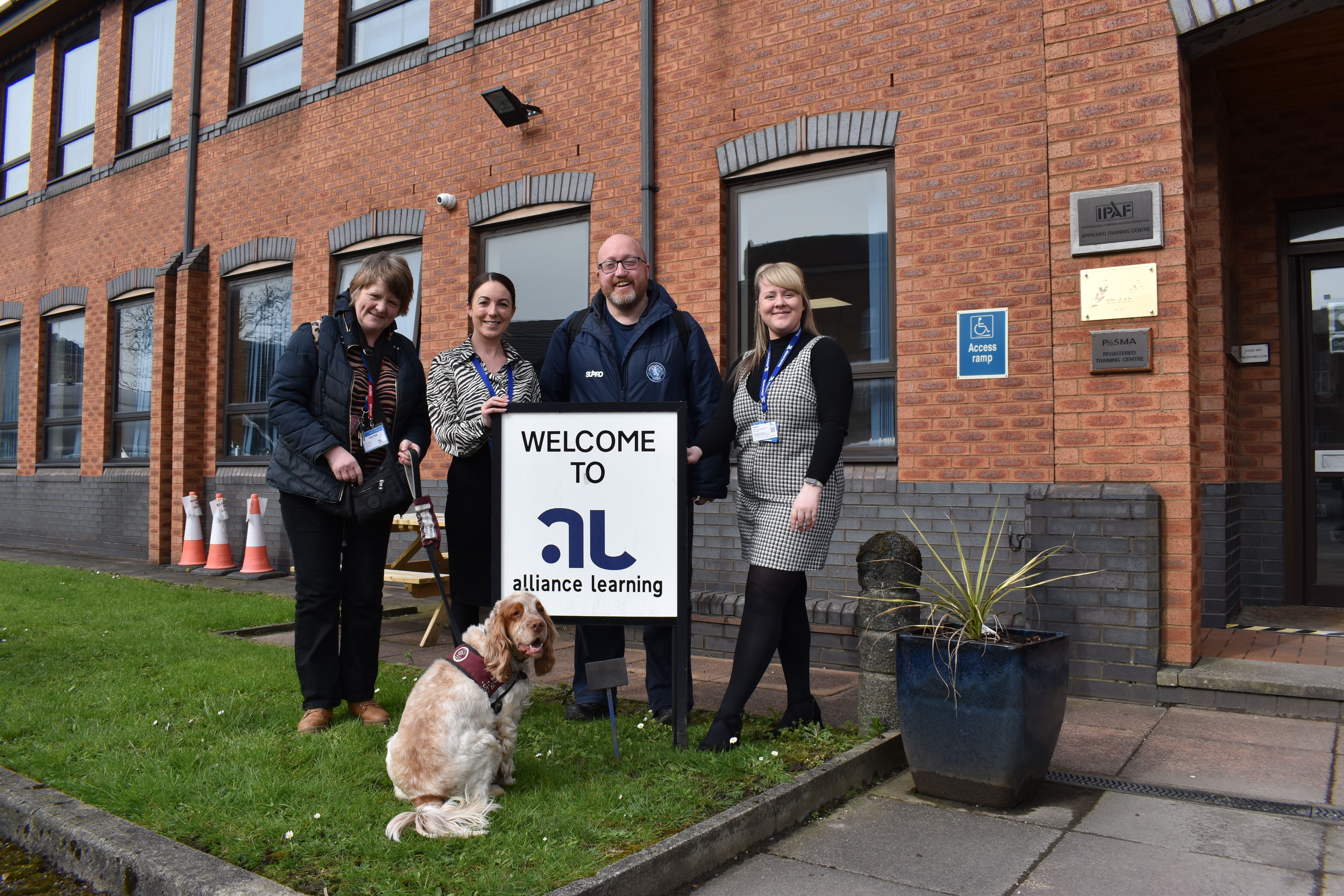Making Apprenticeships Accessible: A Collaborative Effort with Bolton Deaf Society
In today's ever-evolving world, inclusivity and accessibility are paramount values that should be infused into every aspect of society. One area where these principles are especially crucial is in education and employment opportunities. Apprenticeships, with their hands-on approach to learning and skill development, offer a promising path for many individuals to kickstart their careers. However, for deaf, deafened, and hard-of-hearing individuals, accessing these opportunities can present unique challenges.
At Alliance Learning, we recognise the importance of ensuring that apprenticeships are accessible to all. Our Business Development Manager, Chloe, and our SEND Tutor & Personal Development Lead, Megan, had the privilege of meeting with CEO John and Employment and Enterprise Advisor Ruth from the Bolton Deaf Society. The objective? To explore ways to enhance accessibility and inclusivity within the realm of apprenticeships for the deaf and hard-of-hearing community.
Bolton Deaf Society was established in 1869, supporting Deaf, deafened and hard-of-hearing residents across Bolton, which in 2021 equalled 15.7% of the local population. Bolton Deaf Society offer numerous services from their small base on Bark Street and two outreach points. They offer support enabling Deaf, deafened and hard of hearing individuals to experience the same opportunities as other members of the community, through information advocacy, employment support and sport access.
The meeting wasn't just about discussing strategies; it was a tangible display of collaboration and dedication to breaking down barriers. Ruth's hearing dog, Flint, even joined the discussion, highlighting the holistic approach taken by the Bolton Deaf Society in supporting individuals with hearing loss.
One of the primary topics of discussion was the need for tailored support mechanisms throughout the apprenticeship journey. From application processes to on-the-job training, every step must be designed with inclusivity in mind. This may involve providing sign language interpreters, captioning services for training materials, or ensuring that workplace environments are equipped with appropriate assistive technologies.
Moreover, fostering a culture of awareness and understanding among employees and employers is crucial. Many businesses may not be fully aware of the accommodations needed or the potential of deaf and hard-of-hearing individuals in the workplace. By engaging in dialogue and offering resources and training, we aim to bridge this gap and create more inclusive workplaces.
As the meeting concluded, it was evident that our collaboration with the Bolton Deaf Society was just the beginning of a journey toward greater inclusivity. By working together, sharing knowledge, and advocating for change, we can ensure that apprenticeships truly become pathways to success for all individuals, regardless of their hearing abilities.
John Hesketh, had the following comments:
“Deaf people, in all their diversity, offer a range of different skills and bring invaluable life experiences to the workplace. They are often expert in reading body language; are well-used to adapting to new situations and solving problems, and finding ways of navigating obstacles. They are well-versed in all things self-help, independent working and assistance of others; and have a good appetite for innovation. They have a strong appetite for learning, valuing employment, associated personal and professional development opportunities very highly. And they offer employers opportunity to grow their capacity for Deaf customer/service-user connection in compliance with the legal requirements of the Equality Act, Accessible Information Standards, BSL Act and other pieces of legislation – maximising organisational reach and reducing vulnerability to litigation.
Yet in spite of all these positives, many also being current or aspiring specialists in particular fields, training providers and employers often marginalise or exclude Deaf people through their prejudice or anxiety, their lack of knowledge or want of always finding another priority to address. Recent research by RNID in fact showed that 67% of employers would employ a recovering addict or ex-offender rather than a Deaf person, and this Deaf exclusion from the workplace costs the UK economy £25 billion a year in lost tax revenues, benefit costs, mental health treatment expenses and so on: around £7 million per annum in Bolton. At Bolton Deaf Society, with Alliance and through their employer network, we’d like to offer assistance in breaking down barriers to opportunity – offering training in Deaf inclusion; guiding the redesign of application and induction processes; modifying buildings, support/supervision/appraisal/career progression arrangements often with Government funding; piloting a Deaf Mark accreditation scheme and trialling a Deaf Champions initiative. Our ambition is to make Bolton an exemplar of Deaf inclusion and we would encourage those keen to get on board with our push for change to get in touch. We want to raise awareness and help inform, facilitate and/or guide change.”
For more information on the Bolton Deaf Society, please visit -www.boltondeafsociety.co.uk/
For more information on Alliance Learning, please visit www.alliancelearning.com

